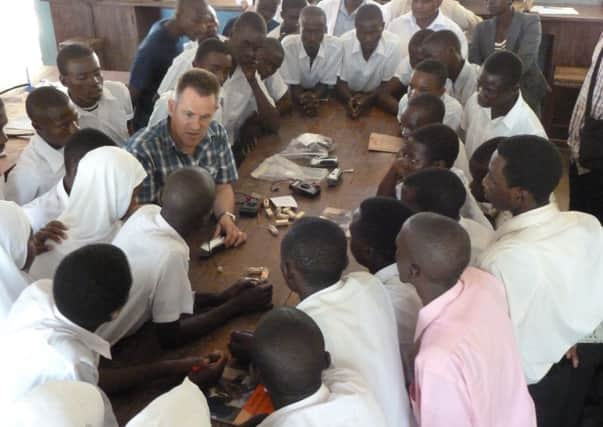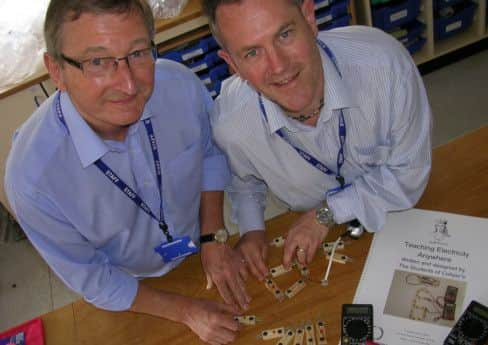Students build electricity education kits for Tanzania


The students volunteered a huge amount of their spare time to construct the kits, in a project generously supported by the Jephcott Trust.
The power is provided by wind up torches, so that there is no need for batteries or electricity supply, thus cleverly enabling the teaching of electricity in areas where there is limited or no electrical power supply.
Advertisement
Hide AdAdvertisement
Hide AdJack Dawson, Angus Watson and Callum Denton assembled 20 kits that are now being used by Mvomero School, Tanzania that shares all of its resources with neighbouring schools in the area. Last year Collyer’s students designed and built the first generation of the low cost electricity kit, accompanied by a book which they took out to The Gambia with the Southwater charity PAGEANT.


Joe Brock, Head of Faculty for Science and Mathematics at Collyer’s, was delighted with level of interest and hard graft shown by this year’s students: “I am very proud of the work that the students do for our Africa projects.
“It takes a lot of commitment to get these kits together and ready for shipping. We are also hugely grateful to our outstanding technicians, Geoff Catt and Philip Hardy. Their help with sourcing and purchasing is extremely valuable and much appreciated”.
The book which accompanies the kit is written by Collyer’s students and has now been adopted by the Institute of Physics. The built in power supply means that the kit has proved incredibly successful and is now being used in many schools across Tanzania.
Advertisement
Hide AdAdvertisement
Hide AdCollyer’s Principal Dr Jackie Johnston said: “Joe Brock and his team of staff and students should be commended. We would also like to thank the Jephcott Charitable Trust for funding this important two year project.”
Report contributed by Collyer’s.